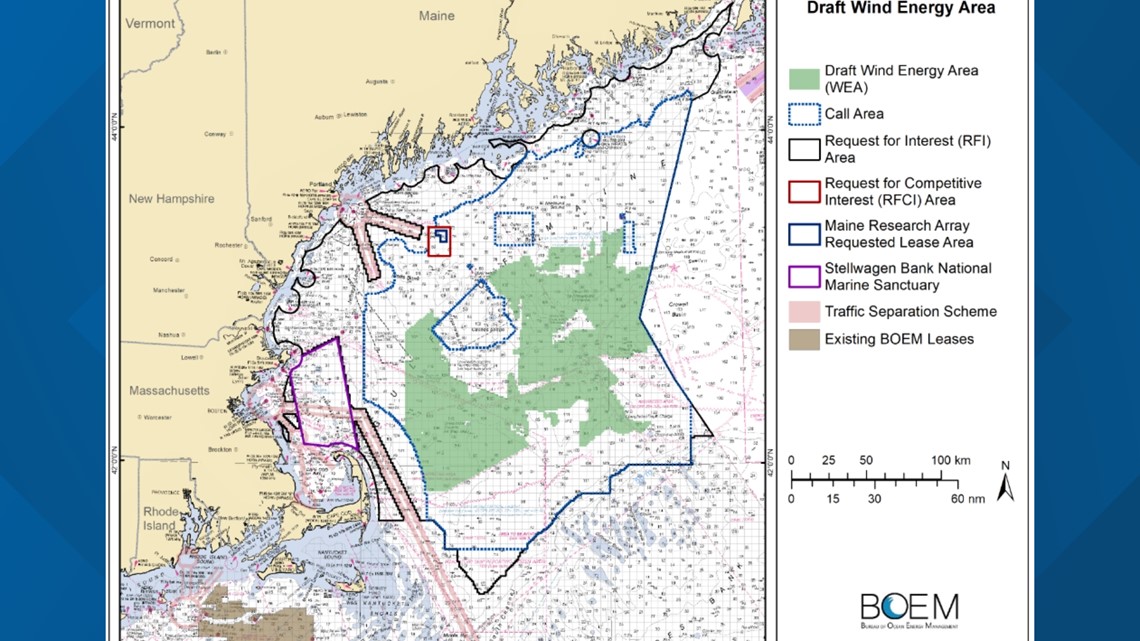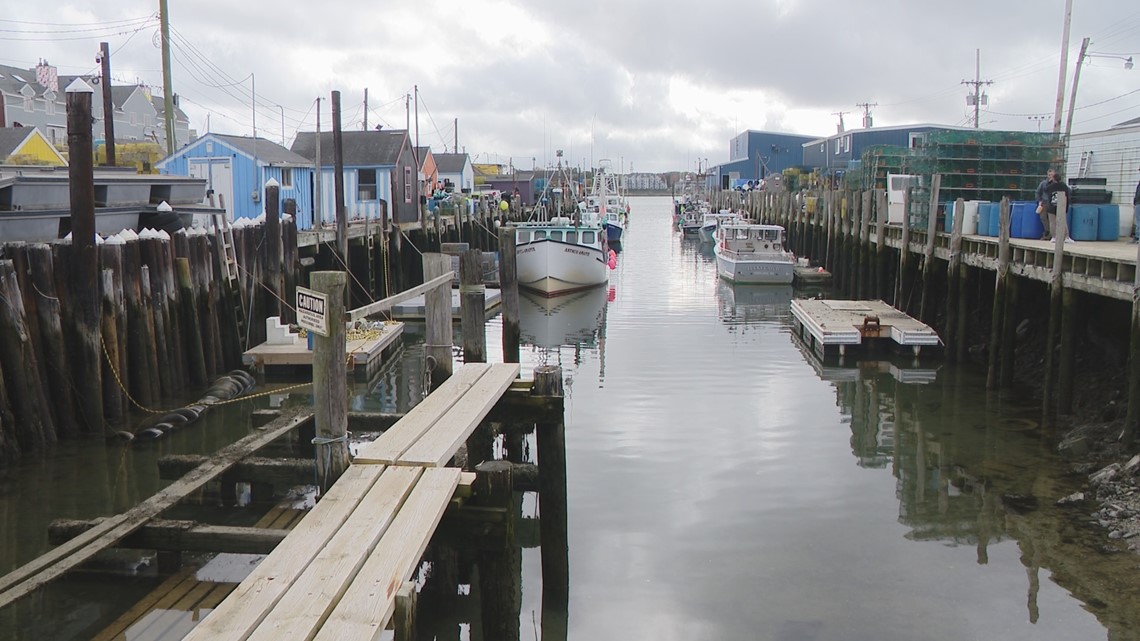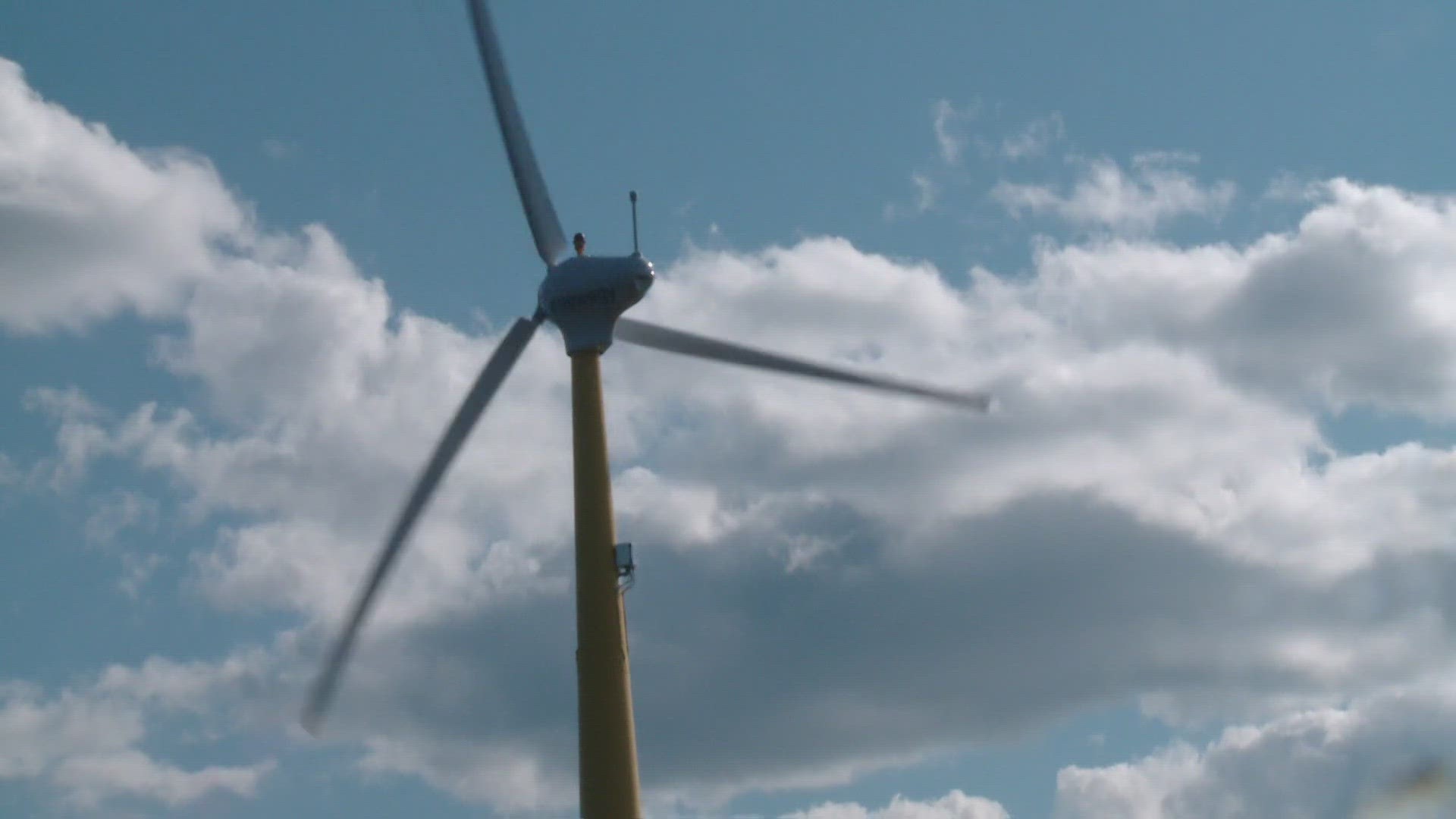MAINE, USA — As Maine moves forward with future goals of offshore wind energy development, multiple stakeholders are praising the decision by a federal agency to exclude the majority of Gulf of Maine fishing grounds, known as Lobster Management Area 1, from its development proposal.
The Bureau of Ocean Energy Management (BOEM) released the draft on Thursday and the plan is now open for public review and comment. The draft of the Wind Energy Area covers more than 3.5 million acres off the shore of Maine, Massachusetts, and New Hampshire, according to an agency release. The areas included range from 23 to 120 miles off the coast.
In Maine, fishing groups, environmental organizations, and labor unions came together to find compromises and advocate for the protection of the Gulf of Maine.
“We have more work to do, but this is a really good indication that we can get there," Jack Shapiro, the climate and clean energy director of the Natural Resources Council of Maine, said Friday. “It’s a really important transition both for climate and environmental purposes but also for economic purposes for Maine people.”
The Maine Legislature passed a law this year that would require the state to develop three gigawatts of offshore wind by 2040. The law also includes labor standards and wildlife protections.


Shapiro added the development area is in federal waters, so BOEM will be responsible for determining where future development projects will be located. He added the turbines in the Gulf of Maine will be mounted on floating platforms that are anchored to the sea floor, rather than built on foundations.
“One of the real areas of potential for offshore wind development is building this industry in Maine and for Maine," he added.
Labor unions around the state are "chomping at the bit" to get working in this new industry, according to Jason J. Shedlock, the president of the Maine State Building & Construction Trades Council.
Shedlock added offshore wind development will provide plenty of work for Mainers and he expects the industry will attract future workers to come to Maine or to stay in the state.
Adding labor standards to the offshore wind development bill, Shedlock added, was the right move as now workers and companies can be well positioned before any construction begins.


Lobster and fishing organizations have been paying close attention to potential offshore development for years. Kristan Porter, president of the Board of Directors of the Maine Lobstermen's Association, said his organization was "surprised and grateful" to learn fishing area was protected in BOEM's draft plan.
“We still have major concerns about offshore wind in the Gulf of Maine, industrialization, but this was big to take the majority of our grounds off the table," Porter added.
Some of those concerns include the literal movement of the lobster fishery. Porter said lobsters are moving more and more offshore and a lot of the areas open to potential development are being fished by Mainers. He also said he wants to make sure any future development is done right and doesn't "adversely affect fisheries and the ecology of the Gulf of Maine."
Porter said the MLA will be involved and represented in any future public meetings with federal and state agencies to make sure the voices of Maine fishermen are heard.
“We were the first environmentalists out there because we’ve always taken care of the ocean," Porter added.
If fishermen, or Mainers in general, want to make their voices heard, Porter said to submit comments related to this draft plan and attend future public meetings.
Maine Gov. Janet Mills and the state's Congressional Delegation released a joint statement in response to BOEM's Wind Energy Area proposal:
“We look forward to reviewing the proposal in detail, but we are encouraged that the Bureau has initially listened to our concerns and those of the fishing community by excluding Lobster Management Area 1 in its draft. We are opposed to any inclusion of Lobster Management Area 1 in the final WEA and we strongly urge the Bureau to continue to engage with Maine’s fishing community, Tribal governments, and other stakeholders during the comment period. We believe that clean energy can offer economic and environmental benefits for Maine that must be pursued prudently and responsibly with a commitment to minimizing to the greatest extent possible the impact on fishermen, recreation, and other crucial ocean uses that are critical to Maine.”
According to BOEM, its draft Wind Energy Area has a capacity of more than 40 GW, which would exceed the current offshore wind energy goals for the Gulf of Maine states. The proposal also excludes development in North Atlantic right whale-restricted areas.
To see a list of upcoming public comment meetings and register, click here.

